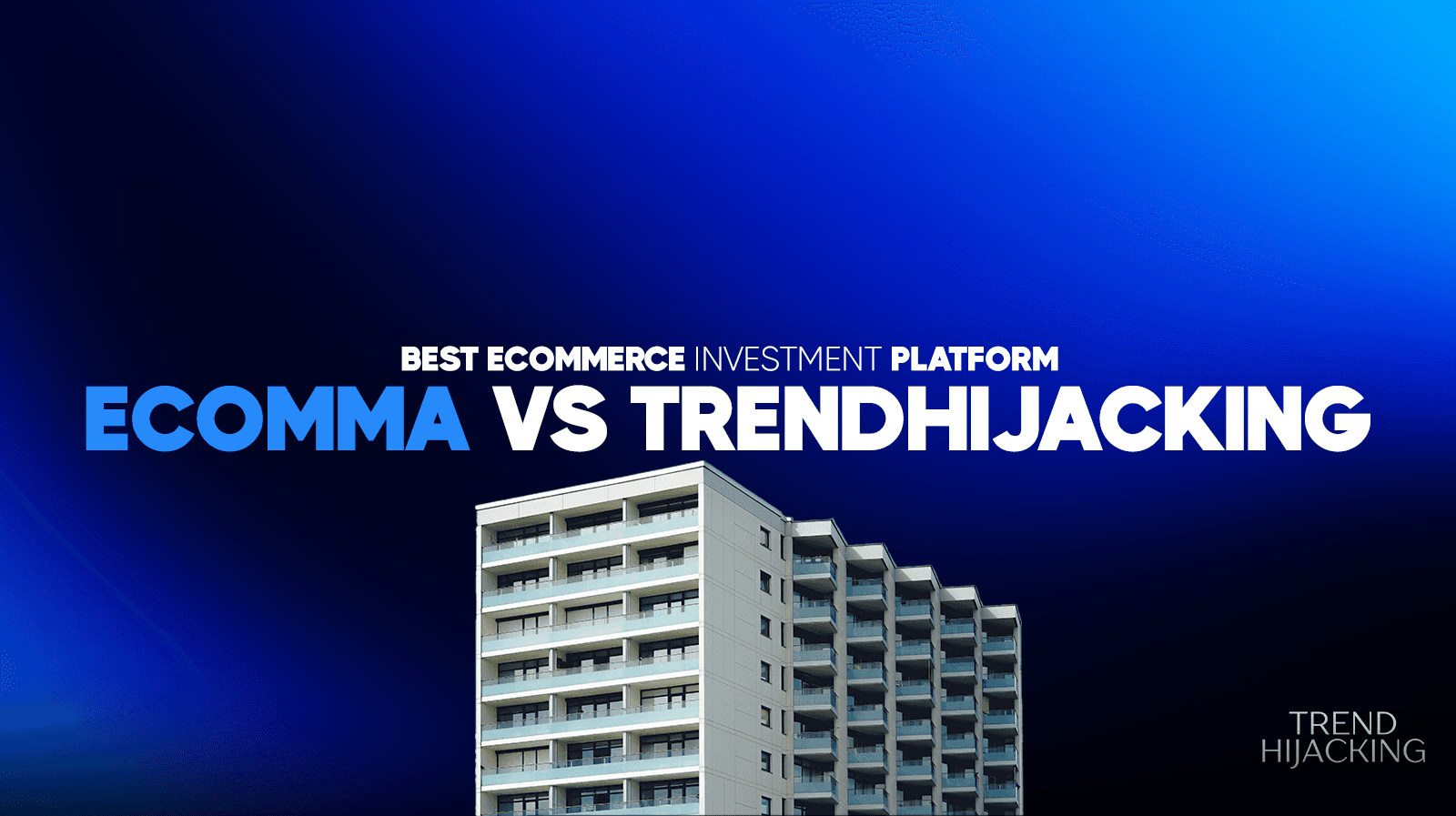How to Buy an E-commerce Business (A Complete Guide)
Understanding the E-commerce Business World
As we have just highlighted in the intro above, the e-commerce industry has exploded in recent years, offering countless opportunities for savvy investors.
This means if you're looking to dive into the world of online business, purchasing an established e-commerce business can be a smart move.
To get started, it’s important to understand the different types of businesses available for purchase and the unique advantages of buying an existing online business rather than starting from scratch.
Types of E-commerce Businesses Available for Purchase:

Here are some of the most popular e-commerce business models you can buy:
Dropshipping Stores
Dropshipping is one of the most common e-commerce models for beginners and experienced entrepreneurs.
With a dropshipping business, you don’t need to worry about stocking or shipping products—third-party suppliers handle all that for you.
This means you can focus on sales and marketing while minimizing overhead costs.
However, it’s important to find reliable suppliers and stand out in a competitive market.
Amazon FBA Businesses
Amazon FBA (Fulfilled by Amazon) businesses leverage Amazon's massive logistics network for storage, packing, and shipping.
This allows you to run their businesses with minimal hands-on involvement in fulfillment.
These businesses benefit from Amazon’s vast customer base, but you’ll need to account for fees and adhere to Amazon’s policies.
It’s a great option if you want to tap into a proven platform with an established infrastructure.
Direct-to-Consumer Brands
Direct-to-consumer (DTC) brands sell products directly to customers without relying on third-party retailers or platforms.
These businesses often focus on unique products, strong branding, and customer loyalty.
While DTC brands may require more effort in terms of marketing and customer acquisition, they offer high profit margins and more control over the customer experience.
This model can be very rewarding if you have a passion for building brands.
Affiliate Marketing Websites
Affiliate marketing businesses generate revenue by promoting other companies' products through affiliate links.
When a customer purchases through one of your links, you earn a commission.
This model can be an excellent passive income stream, especially if you have a website or platform with a strong audience.
However, success depends on your ability to drive traffic, create valuable content, and build trust with your audience.
Benefits of Buying an E-commerce Business vs. Starting from Scratch
Purchasing an established e-commerce business offers several advantages over starting from the ground up:
Start Earning Immediately

One of the biggest benefits of buying an e-commerce business is the ability to generate revenue from day one.
Unlike building a business from scratch, where you need time to attract customers, refine your offerings, and establish brand recognition, an existing business already has an established customer base and operational processes.
This allows you to step into a business that’s already generating income and can potentially scale quickly with the right strategies.
Established Customer Base and Brand

An established e-commerce business comes with a built-in customer base, which is one of the most valuable assets.
Loyal customers trust the brand, have familiarity with its products, and may even make repeat purchases.
Additionally, an existing brand has already done the heavy lifting of creating a market presence, which can save you time and money on marketing.
This is a huge advantage, especially in competitive markets where building brand awareness from scratch can take years.
Proven Business Model

Probably the best part about buying an established e-commerce business is that you inherit a proven, tested business model.
This means you skip the trial-and-error phase that many entrepreneurs face when starting from scratch.
You step into a business that has already demonstrated success.
As such, you can focus on scaling and refining the formula rather than reinventing the wheel.
This reduces risk and gives you a clear roadmap for your online business growth.
We Help You Buy / Build, Manage and Scale E-commerce Brands for an EXIT
E-commerce Simplified for Busy Individuals – We handle the buying, building, and scaling, so you can focus on what matters.
Growth-Focused Strategies – From sourcing to marketing, we drive growth and prepare you for a profitable exit.
Expertly Managed Exits – We build a high-value brand designed for a Lucrative exit.
Step-by-Step Process of Buying an E-commerce Business
Investing in an e-commerce business can be highly rewarding, but it requires careful planning and methodical execution.
Follow these key steps to help you navigate the purchase with confidence and maximize your chances of success:
Research and Identify Potential Businesses

The first step in buying an e-commerce business is identifying the right opportunities.
There are several platforms where you can find listings of businesses for sale. Popular consultancies like Trend Hijacking, or marketplaces like Flippa, and Empire Flippers specialize in connecting buyers with e-commerce businesses.
If you're looking for more personalized services, you can also consider private brokers. These may give you exclusive listings to help match you with businesses that meet your specific investment goals.
Once you've found potential businesses, it’s time to dig deeper and evaluate their potential for long-term success.
Evaluate the Business for Viability

Once you find a business that matches your specific criteria, you’d want to evaluate its viability.
Begin by reviewing its financial performance, including its revenue and profit margins over the past few years. You want to see consistent growth and strong profitability.
If the business shows signs of instability or stagnation, it may not be the best investment.
Additionally, study the niche the business operates in. A business in a high-demand market with limited competition can offer excellent growth potential.
However, a saturated market might be harder to break into.
Stay updated on industry trends and consumer behaviors that could influence the business.
PRO TIP: A business operating in a growing sector or aligned with emerging market trends will be better positioned for future success.
Conduct Thorough Due Diligence

Once you've evaluated the business’s financial health and market potential, it’s time to conduct thorough due diligence to ensure there are no hidden risks.
Begin by reviewing the business's financial documents, such as:
Tax returns
Profit and loss statements
Bank statements
These documents should match the business’s reported earnings. Carefully examine expenses, including marketing costs, overhead, and any supplier fees.
A clear understanding of a business's cost structure will help you easily determine its long-term sustainability and profitability.
If the business relies on suppliers, like in dropshipping or Amazon FBA, it's essential to review the relationships with these suppliers.
Look at the contracts, payment terms, and the reliability of supply chains.
You don’t want to inherit a business that’s dependent on unreliable suppliers or shaky contracts.
Additionally, make sure that the business is legally compliant. Check for any ongoing lawsuits, intellectual property issues, or unresolved disputes.
A clean legal record is essential to avoid unexpected complications after the purchase.
Negotiate and Close the Deal

Once you’ve completed due diligence and are satisfied with the business’s financial health and potential, it’s time to move forward with negotiations and close the deal.
Follow these steps to ensure a smooth process:
1. Understand the business’s value: Begin by clearly understanding the business’s value based on your research. Review the financials, market trends, and any areas for improvement you uncovered during due diligence. Use these insights to guide your negotiation strategy.
2. Negotiate the price: Be prepared for back-and-forth discussions with the seller. Remember, the asking price is often negotiable, especially if you’ve identified areas where the business could be improved or require additional investment after the purchase.
3. Finalize the purchase agreement: Once you’ve agreed on the price and terms, it’s crucial to formalize the deal with a legally binding purchase agreement.
The contract should clearly outline:
Payment terms
Ownership transfer details
Intellectual property rights
Any warranties or representations made by the seller
TIP: It’s wise to have an experienced lawyer review the agreement to ensure all terms are fair and properly documented.
Factors to Consider When Buying an E-commerce Business

When buying an e-commerce business, several factors can determine its success and your return on investment.
Consider the following key elements to make an informed decision:
1. Financial Health
Review the business financial records, including profit and loss statements, tax returns, and cash flow. A stable and profitable business is a much safer investment.
2. Business Model
Understand the business model: Is it dropshipping, Amazon FBA, or DTC? And does it align with your strengths and goals? Each model has different operational and financial demands.
3. Market and Niche
Evaluate the market and niche the business serves. Look for growing industries with strong customer demand and low competition to maximize growth potential.
4. Customer Base
A loyal and engaged customer base is a valuable asset. Assess customer retention rates, email lists, and social media following to determine the quality of the customer base.
5. Suppliers and Inventory
For businesses relying on suppliers (like dropshipping or FBA), verify supplier relationships, pricing, and reliability. Ensure there’s a stable supply chain to avoid future disruptions.
6. Brand Reputation
Check the business's online reputation. Customer reviews, testimonials, and social media sentiment can give you insight into the brand’s credibility and customer satisfaction.
7. Legal and Compliance Issues
Ensure the business complies with local laws, regulations, and industry standards. Look for any legal disputes or pending issues that could affect the business after purchase.
8. Growth Potential
Consider the opportunities for scaling the business. Can you expand the product range, enter new markets, or improve marketing strategies to increase sales?
9. Transition Process
Understand the transition process and the level of involvement required from the current owner. A smooth handover is essential for ensuring business continuity.
Common Questions About Buying E-commerce Businesses

Can you buy an e-commerce business?
Yes, you can buy an e-commerce business through online platforms, brokers, or private sales. Many businesses are listed for sale with detailed financials, making it easier to find a profitable opportunity.
Is an e-commerce business profitable?
E-commerce businesses can be highly profitable, especially if they operate in growing niches with low competition. Profitability depends on factors like business model, market demand, and effective marketing strategies.
What’s the average cost of buying an e-commerce business?
The cost varies greatly depending on the business size, niche, and financial health. Small businesses may cost between $10,000 to $50,000, while larger, established businesses can range from $100,000 to several million dollars.
What are the risks involved in buying an e-commerce business?
Risks include market volatility, unreliable suppliers, legal issues, and potential declines in customer demand. Conducting thorough due diligence minimizes risks, but it’s important to be prepared for challenges that may arise.
How much experience do I need to manage an e-commerce business?
While prior e-commerce experience can be helpful, it’s not essential. With strong research, willingness to learn, and the right team, even beginners can successfully manage an e-commerce business. Key skills include marketing, customer service, and financial management.
Conclusion
In conclusion, purchasing an e-commerce business can be an incredibly rewarding investment if done with careful planning and the right guidance.
With the right approach, you can easily tap into a thriving industry and start generating revenue immediately.
If you’re ready to dive in but need expert support, our acquisition program is here to help you.
We specialize in finding the best e-commerce businesses for you, handling the due diligence, and negotiating favorable deals.
Once you’ve acquired your business, we’ll manage it for you and help you scale. And when it’s time to exit, we’ll ensure you maximize your return.
Ready to get started? Check out our programs for more details!
We Help You Buy / Build, Manage and Scale E-commerce Brands for an EXIT
E-commerce Simplified for Busy Individuals – We handle the buying, building, and scaling, so you can focus on what matters.
Growth-Focused Strategies – From sourcing to marketing, we drive growth and prepare you for a profitable exit.
Expertly Managed Exits – We build a high-value brand designed for a Lucrative exit.
A Done-For-You E-commerce Business
Discover how we Build, Launch, and Scale a 6-figure/month Business for You
Learn more
The 6-Step Blueprint to E-Commerce Acquisition
See how we Acquire, Convert, and Scale with Real Case Studies to Prove It.




















